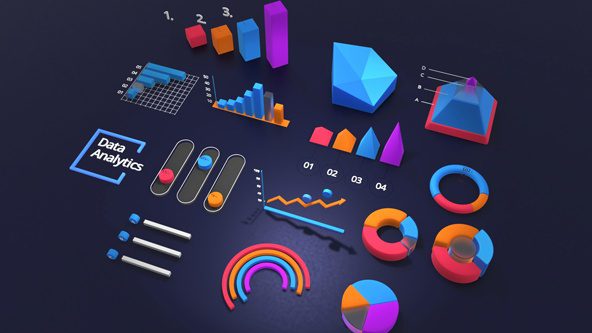Analytics and EBHR
Blog: How Can HR Become More Confident Working with Data and Analytics?
By Dave Millner, Course Director of ‘Impact Through People Analytics’
My last blog focused on the reasons why HR seems to lack confidence in working with data and analytics. The focus for this blog is upon some ideas and solutions that have been shared by a wide range of HR practitioners over the past few years to address some of these challenges.
1. Skills Gap Challenge: This is about having limited exposure to statistical methods and data analysis as well as having difficulty translating data insights into business actions. These are some of the solutions that have been suggested have addressed this challenge:
- Structured Learning Programs:
- Implementing tiered learning programs about data and analytics focusing on the foundations through to more core analytical techniques through to more complex storytelling
- Partner with data teams (e.g. Finance, Operations) for internal mentorship
- Utilise micro-learning modules focused on specific ‘bite size chunks’ of learning to help understand tools and techniques
- Create practical exercises and case studies using real company data.
- Team Restructuring:
- Build hybrid teams combining HR and data savvy professionals
- Create People Analytics team
- Establish clear analytics-based career paths within HR
- Rotate HR practitioners through different analytics projects to aid understanding.
2. Data Quality Issues: This is about building consistent high quality data processes across HR. Some ideas that have worked included:
- Data Infrastructure:
- Implement centralised HRIS with core analytics capabilities
- Create data quality monitoring dashboards
- Develop clear data collection standards and ownership with clear accountability across every HR team.
- Governance Framework:
- Create a data dictionary for HR metrics, remembering that not every metric needs to be reported to the executive
- Implement data cleaning and verification standards
- Undertake regular data quality audits.
3. Cultural Resistance: This is about addressing the concerns that may exist about technology and data replacing human judgement. Areas and ideas that have been seen to work include:
- Change Management
- Showcase early wins and success stories
- Start with simple, high-impact analytics projects
- Create analytics champions within all the HR teams
- Undertake regular communication about analytics projects, the successes, the learnings and the benefits.
- Ethical Framework
- Develop clear guidelines for using data
- Ensure transparency throughout every analytics-based process.
4. Technology Limitations: This is about formulating a relevant and up to date technology-based plan that will provide quality data and access to reliable and ‘fit for purpose’ analytical processes. Strategies that have been shared revolve around:
- Implementation Approach
- Develop a phased technology roadmap
- Prioritise systems with strong analytics capabilities
- Focus on integration capabilities when selecting tools and systems
- Start with pilot projects to address specific HR ‘hot spots’
- Use data and analytics to build business cases using early successes
- Partner with IT to undertake regular technology assessment and updates.
The underlying feedback from HR practitioners across the globe who are on the data and analytics journey are to start small by focusing on specific, high-value problems that can help build confidence in HR, leaders and managers about the whole approach. Collaboration across the organisation is seen as being crucial to success; this isn’t an HR initiative, it’s an organisational initiative. Measure and communicate impact so that analytics is seen as a strategic intervention that raises the profile of what commercially HR can do.
If these challenges and solutions resonate with your own development needs, then consider attending CRF’s ‘Impact Through People Analytics’ programme from 9th to 10th December where these challenges and ideas will be facilitated through a wide range of case studies, examples and further tips for improvements.
UPCOMING CRF LEARNING PROGRAMME :
Impact Through People Analytics
9 – 10 December 2024: 09.00 – 17.00 (Online)
20 January 2025 (Online follow-on session)




